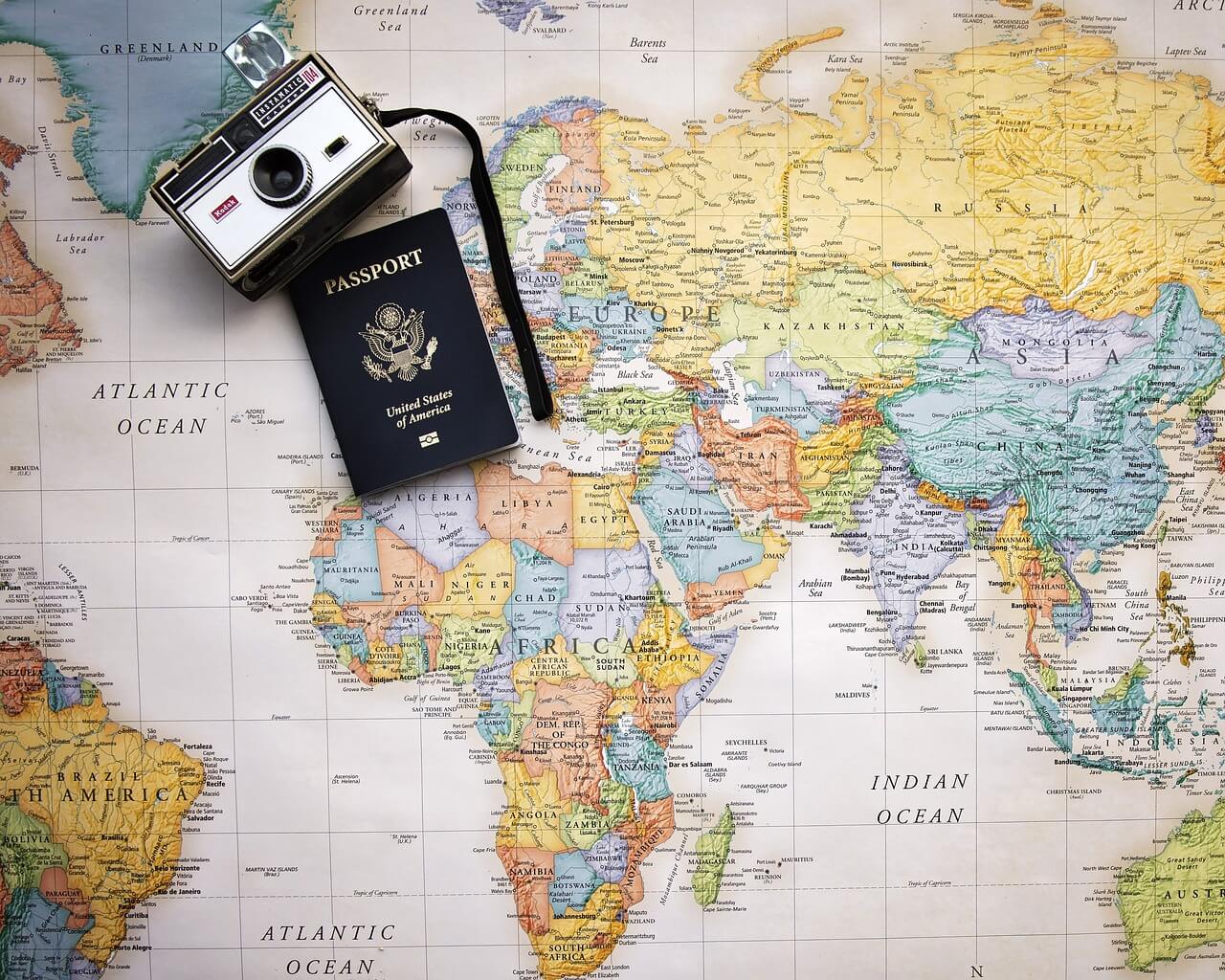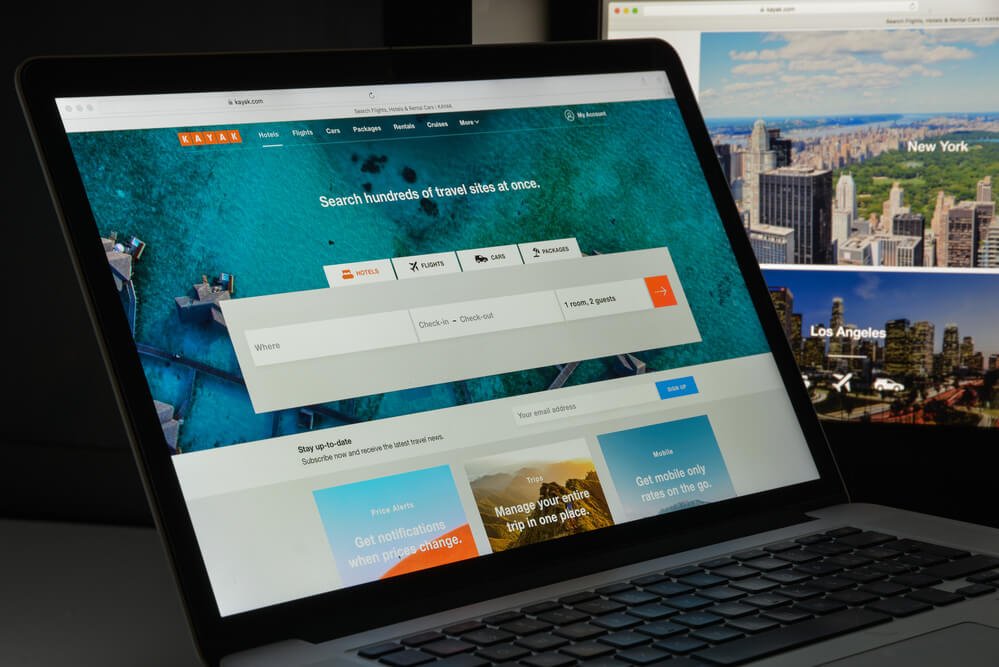Business
Travel planning basics: What you need to know
Planning a trip? Here is a step-by-step guide to planning your ultimate trip including resources for airfares, accommodation, and finding what to do.

To help you plan the ultimate trip, a vacation you will remember forever, we break it down to these simple steps:
- What kind of trip do you want?
- Deciding where to go
- Booking Airfares and Accommodation
- Getting down to the details- What to Do on Your Trip
What kind of vacation do you want?
First, before you do anything, take a few moments to think about previous trips:
- What springs to mind?
- What are some of your best memories?
- What are the activities you really enjoyed?
- Was it a cooking class to learn about local cuisine?
- A visit to a local village?
- A day at the spa?
Think of the stories you have told over and over again. Your planning goal is to plan a trip you will enjoy—one with plenty of great memories and stories to share when you return home.
Getting started using travel guidebooks
Does anyone still use travel guidebooks? Once upon a time, the printed travel guide was the resource of choice. Today in the digital age, there are many other options. Guidebooks help when beginning to plan your trip. Where are you at in your travel planning, what stage? Have you decided where to go? How long to stay? What time of year are you going?
You may be working within a number of constraints. Perhaps you can only travel a certain time of year? Or only have a certain amount of vacation time? Or maybe you have a destination in mind and just need to learn more about it?
In each of these cases, a guidebook is a great place to start as a resource for planning your trip. I usually head to my local library and obtain the latest copy of the guidebook for any destination I am considering.
At this point, this may mean multiple guidebooks for vastly different destinations. That’s okay, as I am exploring and learning.
If you imagine a funnel, I am at the top of the funnel, dumping in all of my options, some will get eliminated in this process. If you already know where you want to go, you are just further down the trip planning funnel.
There is a guidebook for every travel style, and popular brands include:
- Rough Guide
- Lonely Planet
- Frommer’s
- Fodor’s
- DK Eyewitness
- Rick Steves
- Michelin
- National Geographic
If you don’t have a preference yet, choose a couple of different brands for the same destination. Some will be better suited to your travel style and budget.
If you prefer electronic books, many of these brands are now available as ebooks, both from the library and for purchase.
Travel guidebooks provide a great starting point and a comprehensive view of a destination. Use the guidebook to answer the following:
- What is the best time of the year to travel?
- What are the itineraries? How much could you cover in the time frame for your trip?
- What are the typical areas to stay? Get a feel for where the neighborhoods are and where the tourist attractions are located. If you have limited time, staying closer to the tourist areas might be preferable. If you have more time, staying in a more authentic or residential neighborhood will give you the opportunity to experience the location in a different way.
- Using the guidebook, take note of the tourist attractions you would like to visit so you can research them in greater detail later.
That’s it. I suggest you now move your research to other media and resources for planning your trip.
Other travel planning resources will overcome the limits of guidebooks:
- The writer has a lot to visit. Time and space in the guidebook only allow a brief description of a hotel, restaurant or attraction.
- Information is current at the time of publication. It can’t tell you if the restaurant is currently closed for renovation or worse, a major construction project has started next door to your choice of accommodation.
- Depending on your personal preferences and desires for the trip, the guide may not have enough details for you to plan accurately.
So using the travel guidebook, narrow your options to one, maybe two destinations of interest to you. Next step, airfare and accommodation planning for your trip. Using our funnel analogy, we are moving further down the funnel, getting to the exciting parts of planning your next trip.
Travel search engines: Finding great airfares and accommodation
Getting to your destination and where you will stay are usually the two most expensive items, and their availability also influences the rest of your trip. For these items, travel search engines are perfect.
These days, there are a lot of online travel booking sites and a lot of airlines. Checking each site individually can be time-consuming, but a travel search engine searches many of these sites at the same time and brings you back all the available results, saving you time and effort when planning your trip.
Resources for planning your trip: Airfares
So let’s start with airfares. If you are planning a road trip, driving to your destination, you can obviously move directly to accommodation.
There are a number of search engines today, aggregating airfares and showing all the routes from point A to point B and what is available.
Here are a couple of travel search engines we use for finding airfares and flights:
ITA software
You can’t buy a ticket on this site, but you can find out a lot of valuable information. Google now owns this company. It is the software behind many travel search engines.
Enter your departure city, your desired destination, and initially, I usually tick the option at the bottom of the screen to show all airfares, even if unavailable.
This search reveals the absolute lowest fare available to your destination and the airline it is on (even if unavailable). It shows all routes, not just the ones you can book on the search engine you are using. It will allow you to estimate cost and travel time to your destination.
Kayak.com
My next stop is usually Kayak.com. I like this travel search engine because it allows you to search other search engines at the same time, i.e., Priceline, Expedia, etc., and it also usually has the budget or no-frills airlines as well.
Kayak will return itinerary results across multiple carriers, you can search three days before and after the date you enter, and you can see the results in a matrix by date and number of stops. So this is a great resource for planning your trip and checking flight options in a quick, easy way.
Since I have already been to ITA Software, Kayak allows me to see if the fare showing is the lowest fare or just the lowest available fare.
Kayak also allows you to sort by airline so if you have a preference you can see how it compares without having to go to multiple airline sites. You can also search multi-city and one way fares. Sometimes these can be cheaper options.
If the lowest fare showing in ITA Software is substantially cheaper than available fares, going to the airline site and registering for the specials email is an option. This notifies you when airfares go on special.
Depending on how much time you have before your trip, you may decide to book now or wait and see if there is a sale. (Airfares are usually cheapest booked in advance.)

Travel search engines such as Kayak.com allow travelers to easily pick airfares with the best prices. (Photo by DepositPhotos)
If you have frequent flyer points, you can now decide if it is better to try and use those or just buy the airfare in this instance.
Pro tip for finding the best flights:
Always use the plus or minus three-day criteria when initially searching. This allows you to see a full week’s flight schedule. Some carriers only fly a given route on a certain day and many discount carriers have limited service.
Booking your airfare directly on the carrier’s site is recommended as you can manage the booking and see any restrictions (luggage allowance, change fees, seat requests, etc.).
If you need to make a booking across multiple carriers, have a travel agent assist you or use one of the travel search sites, such as Expedia and Kayak.
You want your fares to be on the same itinerary in case a flight is delayed. If using multiple carriers, unless it is on the same itinerary, the carrier cannot see your connections, nor can you check luggage all the way through at your initial check-in.
Resources for planning your trip: Accommodation
Using the dates you find for available airfares, begin searching for accommodation.
Kayak has a search engine for accommodation, but it is usually large hotel chains. I prefer using Booking.com. In addition to large hotels, listings include self-contained apartments, B&B’s and smaller family-owned establishments providing a more comprehensive overview of accommodation options.
Peer review listings provide up to the day reviews. It is where you can find there is a construction project on next door, or several floors are being renovated. That could be the reason for that low rate.
If you are looking for a self-contained apartment or house, you may want to try other sites such as VRBO – Vacation Rentals By Owner, AirBnB or HomeAway.
Performing a search for “accommodation in Antalya, Turkey” will usually return several smaller directories specific to the location. These can also be good to find unique accommodation options. It depends on your travel style and desires for this trip.
Pro tips of booking accommodation:
Until you book your airfare, booking other aspects of your trip including accommodation may end up costing you more money. So the recommendation is to book your airfare first. Always check the cancellation terms and conditions.
Resources for planning your trip: What to do
Never have there been more online resources for planning this aspect of your trip. Continuing the funnel analogy, we are now in the narrowest part of the funnel. We know where we are going, how we are getting there, how long and where we are staying.
The internet provides some great resources for planning your trip:
Blogs
These days, there is a blog for everything. Try searching “blogs for Your Destination,” this can be at the country, state or city level. Some blogs are directed to locals, some to general visitors.
As an example, using Bangkok as the destination for my next trip, if I am coming from overseas I can find blogs covering Southeast Asia, Thailand or Bangkok. Many of the Bangkok blogs are written for locals so this can be a great source of local knowledge and unique things to do.
Blogs have the time and space to write detailed reviews, provide itineraries and suggest activities around a particular interest.
Register for newsletters, explore the site and use these resources for planning both before you go and once you arrive.
If you have questions leave a comment on the blog, most bloggers read their comments and will answer you promptly.
Social media
Facebook groups, Twitter, Pinterest and Instagram let you search for your destination and find great resources. You can ask questions, post comments and source information to decide.
Day trips and short tours
Viator, Get Your Guide and Vayable are great for providing current reviews, finding activities, and things to do. Vayable lists locals willing to be your tour guide. The costs can be lower than large tour operators and the experience of sharing the day with someone with local knowledge can make for great trip memories and stories.
Travel forums
Need to ask a question, unsure about anything? Just ask. There are a number of travel forums with helpful, engaged audiences happy to assist. Thorn Tree (Lonely Planet), Trip Advisor Forums, Slow Talk and many smaller, niche forums allow you to post your questions and receive answers.
Apps
Many apps are available to use on your tablet or mobile and if you have data access (including free wifi points) these can be helpful once you arrive. Search the app store for your destination and take note of advertisements once you arrive.
An example, inside the Grand Bazaar in Istanbul, there are signs alerting you to an app that will help you find things within the Bazaar. Most major cities have a transportation planner that can help you find the correct bus or train just by entering where you want to go.
Current events and city guides
Look for what events are on while you are there. Use a search engine to search for “destination X in the month you will be there”, or “what’s on,” i.e. “Melbourne in August,” or “What’s on in Melbourne.”
Other options are guides such as TimeOut or In Your Pocket, or Where Guides. These can help you find events, concerts, shows and festivals for which you might need to buy tickets in advance.
Podcasts
Podcasts can be a great way to learn about a destination, with many providing the equivalent of a free audio tour. One example: Rick Steve provides a huge selection of podcasts for European destinations.
Movies and books
To get you in the mood, look for movies and books about your destination. Don’t forget documentaries. Goodreads is a good source for locating relevant books, including novels set in a particular place.
Local language
If applicable, brush up on the local language. Learn to say hello, good bye, thank you, please, and other common everyday phrases. There are a lot of tools online to help you learn a language and help with pronunciation. Duolingo is an easy to use free option.
Organizing your research
Using a tool like TripIt or Pinterest organizes your research and itinerary in one place so you can take it with you.
Do you need travel insurance?
If you are booking nonrefundable flights and accommodation, or booking expensive activities, travel insurance can come in handy if you need to change your plans.
Some credit cards provide basic travel insurance, but in some instances, an independent travel insurance policy can be needed.
Finalizing your trip
Lastly, remember to leave some free time for wandering and resting. Everything doesn’t have to be planned. Traveling can be hard work, and this is a vacation after all. Free time to wander around and explore your surroundings often leads to some great discoveries, those not found in any guidebook.
Use any combination of these resources for planning your trip and you’ll have a fantastic time—a trip filled with lots of great memories and stories to share when you get home.
—
DISCLAIMER: This article expresses my own ideas and opinions. Any information I have shared are from sources that I believe to be reliable and accurate. I did not receive any financial compensation for writing this post, nor do I own any shares in any company I’ve mentioned. I encourage any reader to do their own diligent research first before making any investment decisions.

-

 Fintech3 days ago
Fintech3 days agoFirst Regulated Blockchain Stock Trade Launches in the United States
-

 Africa2 weeks ago
Africa2 weeks agoAir Algérie Expands African Partnerships
-

 Markets6 days ago
Markets6 days agoRising U.S. Debt and Growing Financial Risks
-

 Business2 weeks ago
Business2 weeks agoDow Jones Near Record Highs Amid Bullish Momentum and Bearish Long-Term Fears


























You must be logged in to post a comment Login